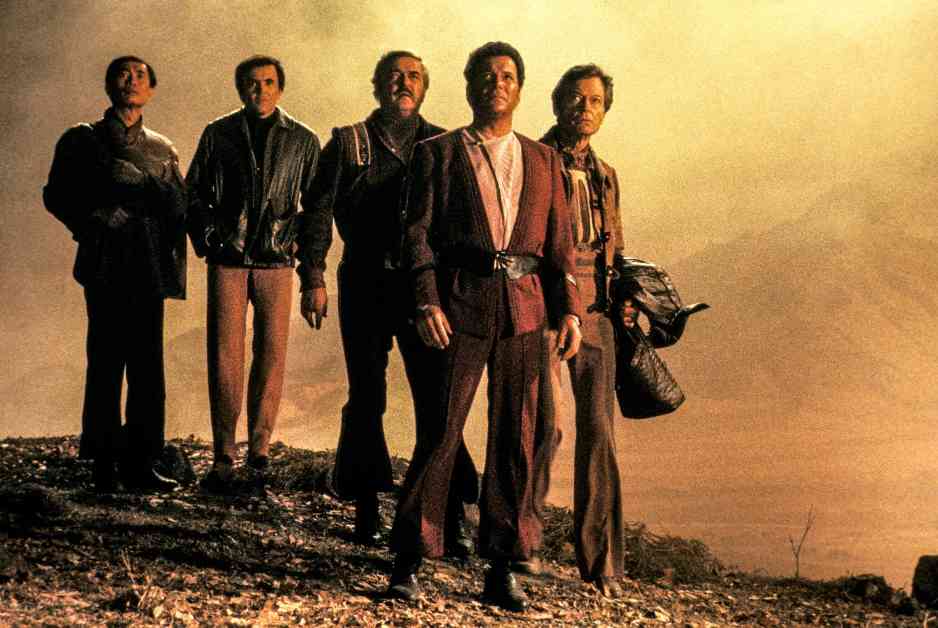Star Trek: The Universe’s Forbidden Word
Gene Roddenberry, the visionary behind the iconic sci-fi franchise „Star Trek,“ created a universe that captivated audiences worldwide. His vision of a utopian society resonated with fans, leading to the enduring success of the series. From the passionate actors who became directors to the dedicated writers who adhere to Roddenberry’s original vision, „Star Trek“ has become a cultural phenomenon unlike any other.
The Legacy of „Star Trek“
As Gene Roddenberry developed „Star Trek,“ he envisioned a future where humanity had overcome its differences to explore the stars in harmony. This idealistic vision struck a chord with viewers, who were drawn to the show’s message of hope and exploration. The success of „Star Trek“ can be attributed to the deep love and dedication of those involved in bringing Roddenberry’s vision to life.
Many actors who appeared in the various „Star Trek“ series and films have gone on to direct episodes or play multiple roles across different iterations of the franchise. The writers, too, are often avid fans who adhere to the rules established by Roddenberry in the original „Star Trek“ series. These rules serve as the guiding principles that shape the stories told within the „Star Trek“ universe.
The Prohibition of a Word
In the more recent series „Star Trek: Discovery,“ actor Jason Isaacs, who portrayed Captain Gabriel Lorca, encountered the strict guidelines set by Roddenberry. In an improvised scene, Isaacs added the word „God“ to his dialogue, only to be corrected by writer Kirsten Beyer. Beyer explained that Roddenberry’s vision of a utopian world was one where science, not religion, held sway. In this future, the concept of God had no place, as it contradicted the central tenets of a society shaped by scientific progress.
Isaacs‘ inquiry about using profanity instead of the word „God“ highlights the delicate balance between creative expression and honoring Roddenberry’s vision. While some may view the prohibition of certain words as restrictive, it underscores the commitment to maintaining the integrity of the „Star Trek“ universe and its core principles.
Challenging the Rules
Despite the strict adherence to Roddenberry’s guidelines, some showrunners have questioned the rigidity of certain prohibitions within the „Star Trek“ universe. Gretchen Berg, a former showrunner, suggested that the ban on the word „God“ may not be as absolute as previously thought. She emphasized that „Star Trek“ has always been about diversity and embracing differing viewpoints, including those rooted in religious belief.
Throughout the history of „Star Trek,“ there have been instances where Roddenberry’s rules have been challenged or reinterpreted. One such rule stipulated that conflict among crew members should be avoided, with external threats driving the narrative. However, as the series evolved, this rule was occasionally disregarded to explore the complexities of human relationships and interpersonal dynamics within the crew.
Embracing Diverse Perspectives
The essence of „Star Trek“ lies in its ability to explore the human experience through the lens of science fiction. While Roddenberry’s vision set the foundation for the franchise, subsequent creators have sought to expand upon his ideas and incorporate diverse perspectives. This evolution has allowed „Star Trek“ to remain relevant and engaging for audiences of all backgrounds.
As fans continue to immerse themselves in the rich tapestry of the „Star Trek“ universe, they are reminded of the enduring themes of exploration, discovery, and unity that have defined the series for decades. By honoring Roddenberry’s legacy while also challenging conventional boundaries, „Star Trek“ continues to push the boundaries of storytelling and imagination in the realm of science fiction.

